July 11, 2025
Today’s Classic Quordle Hints & Answers
Welcome, word sleuths and puzzle aficionados, to today's Quordle Classic mode on 2025-07-11! Dive into the unique and thrilling strategic challenge where your wit is tested against not just one, but four word grids simultaneously. It's a test of your vocabulary, pattern recognition, and multi-tasking skills that promises to keep your neurons firing on all cylinders. Are you ready to tackle today's lexical labyrinth?
Don't fret if the quadruple conundrum feels overwhelming—managing multiple word grids can be a breeze with a few savvy strategies. Start by focusing on common letters, utilize deducible patterns for each grid, and keep an eye on the interplay between all the puzzles. Need an extra push? Our Quordle Solver is here to keep you moving forward. Stay positive and let your curiosity guide you—one letter at a time can unravel the intricacies of today's challenge. Good luck!
Hints for Today’s Quordle Classic Puzzle
Word 1 Hints:
- The word has two vowels with one repeated; the first three letters are consonants, and the pattern is CVCVC.
- This is a noun that often refers to a particular feature or part of a specific item of clothing.
- It falls under the category of fashion and clothing accessories.
- You often hear about this when tailoring suits or jackets, especially in formal menswear.
- Think about where a florist might pin a boutonniere on a gentleman's outfit during a formal event.
- The word consists of one vowel followed by a consonant and ends with a three-letter consonant cluster. The middle letter is the same as the last letter.
- This term is most commonly used as a verb but can also function as a noun.
- This concept is often associated with liquids and the removal or movement away of such substances.
- When used in everyday situations, this term is frequently related to plumbing or natural occurrences involving water.
- The initial letter is what you would attribute to something descending by gravity, while the central part of the word often follows a clog in a sink.
- The word has one consonant followed by a vowel, and this pattern is repeated with two different consonants and a second instance of the initial vowel.
- This word is a noun, denoting a location or position, but can also serve as an adjective to describe relative placement.
- It pertains to the face or direction that usually encounters the observer or is considered the fore part in motion or situational context.
- You would typically use this word to refer to the leading part or side of something, such as a building, formation, or group.
- When providing directions or describing something's orientation, this term would be the antonym of the word that means the back or rear side.
- The word follows the pattern consonant-vowel-consonant-consonant-consonant.
- This word is an adjective often used to describe things that cause disgust or repulsion.
- It falls within the category of subjective sensory evaluation, particularly dealing with cleanliness or hygiene.
- You might use this word when you encounter something that strongly offends your senses, especially in terms of sight or smell.
- The word rhymes with a term that might be used to describe a large, unkempt beard.
Think you’ve cracked it? Or are you still scratching your head? Scroll down for the ultimate reveal—but proceed with caution if you’re still guessing!
Warning: Spoilers Ahead!
This is your final heads-up! If you’re looking for tips or strategies to improve your game but still want to solve the puzzle by yourself, scroll back up now.
Below this section, we reveal today’s answers, so continue at your own risk.
Today’s Quordle Classic Puzzle Answer is…
Ready for the solution? Here’s today’s Quordle answer:
The term LAPEL refers to the part of a jacket or coat that is folded back on the chest, often framing the opening for the buttons or zipper. It's a noun commonly used in fashion contexts. For instance, one might say, "He wore a red rose on the lapel of his tuxedo." The word originates from the diminutive form of the Old French "lapp," meaning a napkin or piece of cloth. Players might have found this word tricky due to its less frequent usage in everyday conversation and the possible confusion with similar-sounding words.
Word #2: DRAINThe word DRAIN is a verb that means to cause liquid to flow out from something or to remove the liquid from an area. It is commonly used in expressions like "drain a swimming pool" or "the battery is drained." The word has Middle English origins, related to the Old English 'drēahnian', meaning to strain out. The word could have posed a challenge to players because of the possibility of confusing the starting letter with other words that end in "rain," or not recognizing it as a verb form.
Word #3: FRONTFRONT can serve as a noun, verb, or adjective. As a noun, it refers to the forward-facing side of something or the part that is ahead in a forward direction, like "the front of the building" or "front line." The word comes from the Old English 'front,' from Latin 'frons,' meaning forehead or front. As a word that can be a positional reference and also describe a confrontation or a weather term (e.g., "cold front"), players may have been misled by its versatility and multiple meanings.
Word #4: GROSSThe adjective GROSS describes something that is very unpleasant to the senses or something that is total or whole, without deductions, as in "gross income." Originally, it was Middle English 'gros,' from the Old French meaning large or thick, which in turn came from the Latin 'grossus.' The word could trick players due to its dual meaning and because it shares common letters with other frequent words, making it harder to isolate when guessing in the game.
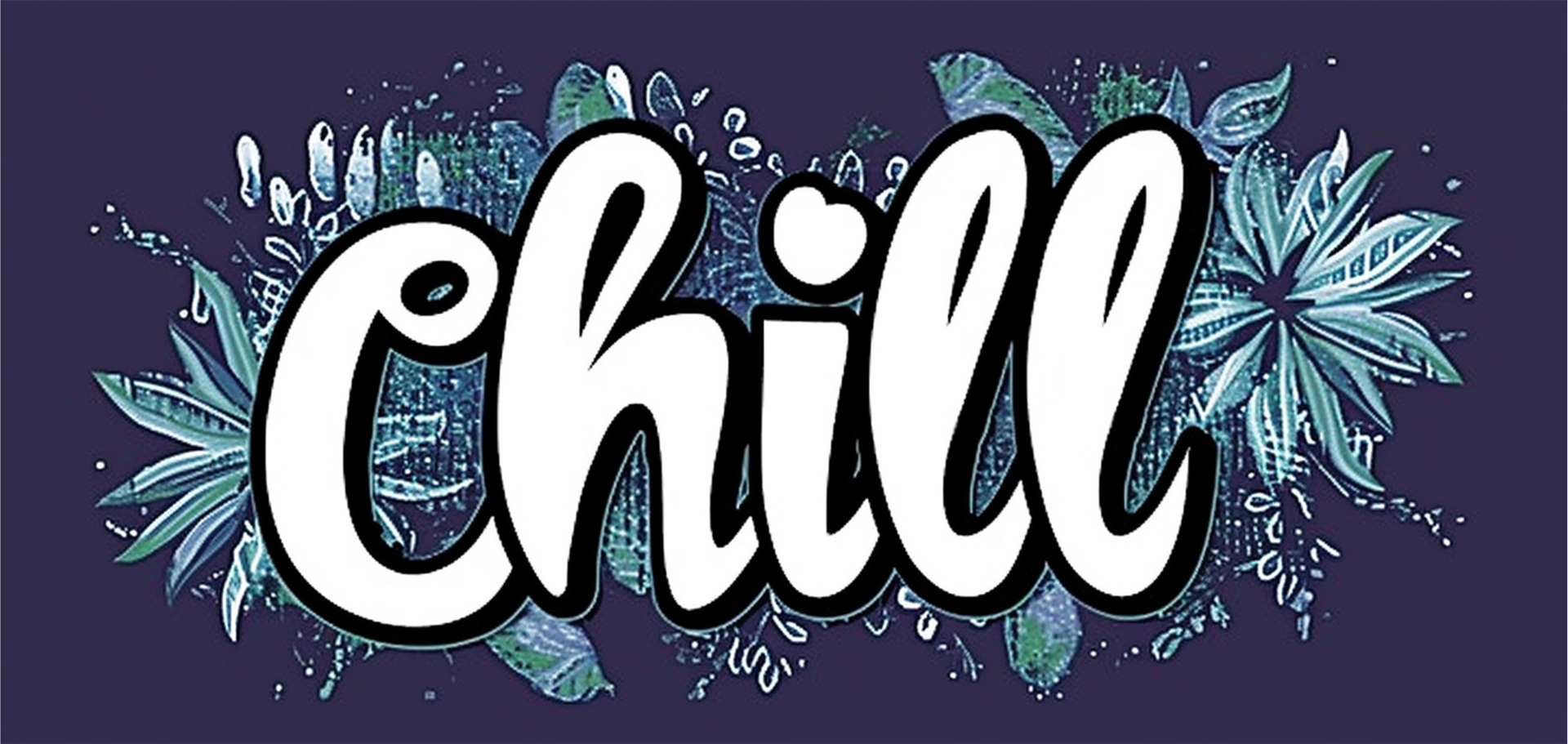
Today’s Chill Quordle Hints & Answers
Unwind and enhance your word skills with today's chill Quordle mode on 2025-07-11 — remember, with unlimited attempts, every guess is a new tip to grasp, so take it easy and if you're ever in a bind, our friendly Quordle Solver is here to help!
Hints for Today’s Quordle Chill Puzzle
- The structure of the word includes one vowel repeated twice and four distinct consonants.
- As a part of speech, the word is a gerund denoting an action or process.
- This term falls under the category of actions typically associated with humans or machines.
- You might use this term commonly when referring to someone being occupied with a task or activity.
- As a strategic hint, this word could describe what a bee does with flowers, but on a more general level and without reference to any specific action.
- Letter pattern hint: The word contains only one vowel, which appears twice. All other letters are consonants, and the word starts and ends with the same one.
- Word type hint: This is an adjective that adds a lively or energetic quality to the noun it describes.
- Semantic hint: In the realm of flavors and personalities, this term is often used to describe a vibrant and invigorating characteristic.
- Context hint: You might use this word to describe a dish that has a bit of a tang or a person who is full of energy and enthusiasm.
- Strategic hint: Think of something that makes your taste buds tingle or adds a 'spice' to life without being spicy itself.
- The word has one consonant followed by a vowel, and this pattern is repeated twice.
- This is a verb that suggests a forceful separation or division.
- It can be associated with both physical and metaphorical actions relating to damage or destruction.
- You might use this term when discussing the act of rending something into pieces or when taking a pause from work or activity.
- The word rhymes with a common homophone pair related to taking a pause or ceasing work and an edible cereal grain.
…
Another Warning: Spoilers Ahead!
Just a heads-up! If you’re working on Quordle Chill and want to solve it yourself, now’s the time to scroll back up. The answers are coming up next, so only keep going if you’re ready to see them!
…
Today’s Quordle Chill Answer is…
Here are the answers to Chill mode.
Doing, a noun derived from the verb to do, refers to the action of performing or executing tasks and activities. As a noun, it's often used to discuss the process of taking action, such as in the phrase, "Getting into shape requires regular doing." The history of the word is rooted in Old English 'dōn,' which has origins in Germanic languages and is related to similar verbs in Dutch ('doen') and German ('tun'). Players might have been challenged by this word in Quordle due to its simplicity and commonality, leading them to overlook it in favor of more complex words.
ZESTY:Zesty, an adjective, describes something characterized by a pleasingly pungent or tangy taste, often associated with food. However, it can also refer to lively and enthusiastic characteristics in personalities. Common usages include descriptions like "zesty salsa" or "zesty conversation." The word zest comes from the French 'zeste,' which denotes orange or lemon peel used for flavoring—reflecting the word's evocative sensory origins. The challenge with 'zesty' in Quordle could come from its unique letter combination and the rarity of the letter 'z' in day-to-day vocabulary, making it less likely to be guessed early on.
BREAK:The word break is used both as a verb and a noun. In its verb form, it means to separate into pieces through force or to interrupt a continuity, as in "to break a window" or "to break the silence." As a noun, it's an instance of breaking or a pause in work, "I need a coffee break." Tracing back to Old English 'brecan,' sharing roots with Dutch 'breken' and German 'brechen,' it has been in use for over a thousand years. The diversity of meanings and usage scenarios for 'break' could pose a challenge to Quordle players, as the word's frequent application in idiomatic expressions may distract from its core meaning as a simple action or event.
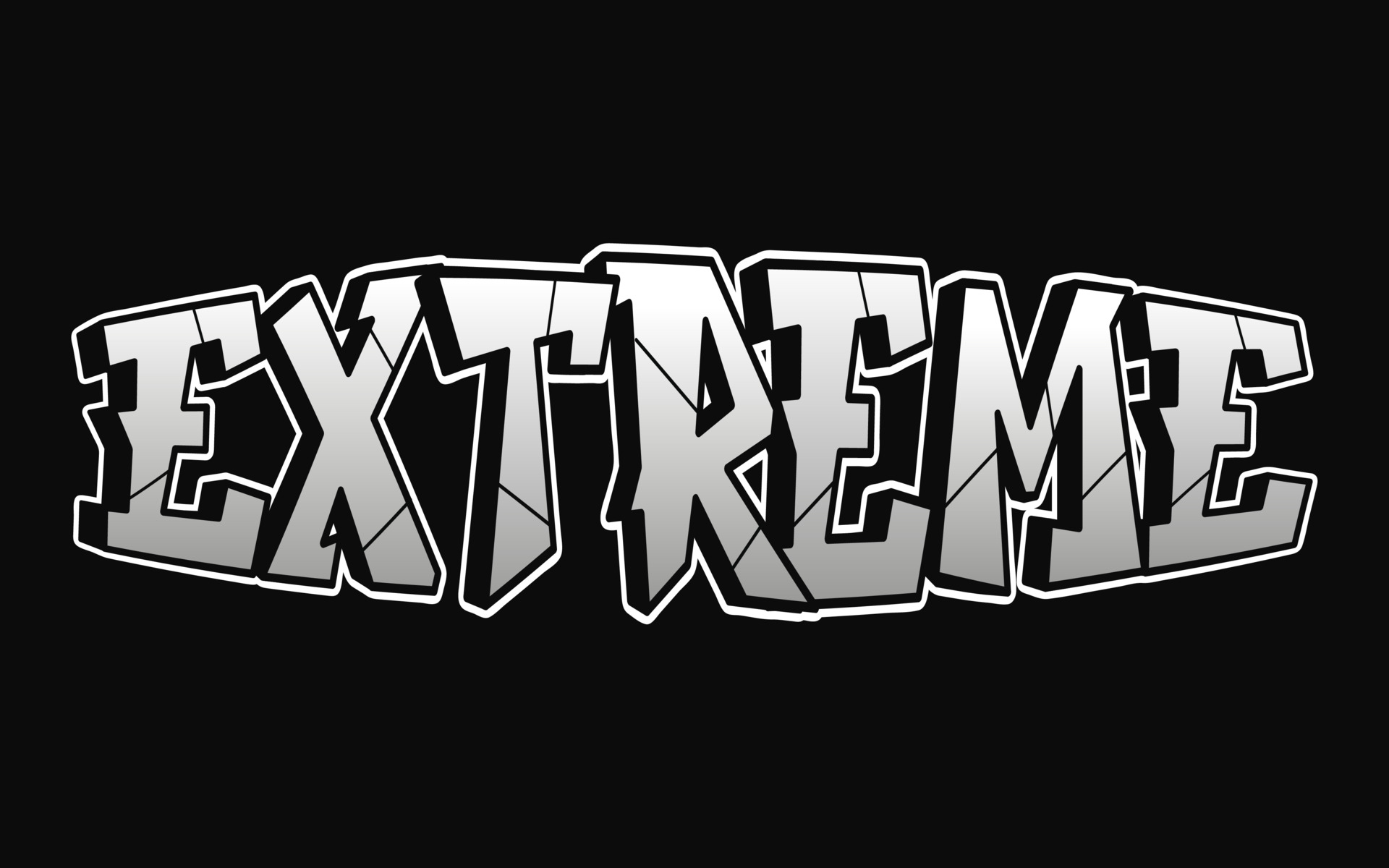
Today’s Extreme Quordle Hints & Answers
Face the ultimate cerebral showdown in today's Quordle Extreme mode, dated 2025-07-11, where you'll need the strategic depth and advanced tactics our Quordle Solver provides to conquer the heightened challenge!
Today’s Quordle Extreme Mode Hints
Word 1 Hints:
- The first word in today's extreme mode has a structure that begins with a consonant, followed by a vowel, then a consonant blend, another consonant, and ends with a single vowel.
- This entry is a noun primarily, but it can also function as a verb, describing a fastening action or object.
- It falls under the category of objects often related to closeness, fastening, or support in various physical contexts.
- You might think about this term when dealing with securing a buckle or grasping firmly with a hand or device.
- If you're seeking firm attachment or grabbing something tightly, this word – both an object and an action – captures its essence without slipping away.
- The structure of this word features a single vowel appearing in the first position, directly followed by a consonant, and ends with a blend of two consonants that are often used to start or end words in the English language.
- As for the part of speech, it is a noun that can also be used as a verb, and it represents an action or its result when used as the former.
- Within the general category, it falls under the umbrella of beginning or starting something, particularly within formal scenarios or when something is showcased for the first time.
- This term is often used when discussing the beginning of a speech, presentation, or performance; it is the point at which things are set into motion or initially explained.
- When aiming to crack the word strategically, consider what you might provide to an audience or a group to warm them up or to familiarize them with the topic at hand right at the beginning of your interaction with them.
- This word follows a structure where the first three letters are consonants, the fourth is a vowel, and the fifth is a consonant.
- The word is a noun, often used to describe an entity in various mythologies and religious beliefs.
- Belongs to the category of supernatural beings that are typically associated with evil and temptation.
- You might encounter this term when discussing stories that feature good versus evil, morality, or when depicting bad omens or malevolent influences.
- This term can also colloquially refer to a person with mischievous or rebellious behavior, but without losing the underpinning connection to mischief and darker traits.
- The fourth word follows the pattern of consonant, vowel, consonant, consonant, vowel.
- This word is a noun and represents a common type of establishment found in areas frequented by travelers.
- When thinking of this word, consider where you might stay if you were on vacation or away from home for a period of time.
- You'll often find these establishments rated by a system of stars, indicating the quality and services they provide.
- This word is also the name of a structure where one might book a room for a night or more, and it commonly begins with the same letter as "hospitality" but has nothing to do with hospitals.
…
Last Warning: Spoilers Ahead!
Heads up! If you’re playing Quordle Extreme and still want to figure it out on your own, stop scrolling now. The answers are just below, so only keep going if you’re ready to see them!
…
Today’s Quordle Extreme Answer is…
Ready for the solution? Here’s today’s Quordle answer:
Definition and Word Type: A clasp (noun) refers to a device meant to fasten two things together or a firm hold or grip. As a verb, it means to grasp or hold tightly. Common Usage Examples: In jewelry, a necklace might have a clasp that keeps it secure around one's neck. Someone may clasp another person's hand in a gesture of comfort or agreement. Interesting Etymology: The word originates from the Old English 'clæppan', meaning to throb or beat. Over time, it took on the significance of an embrace or a fastening device. Challenge for Players: The mixture of consonant sounds in "CLASP" could have been troublesome, as the initial 'CL' blend followed by the 'SP' might not be the first combination players guess in a game like Quordle. It doesn't fit into common starting word strategies, potentially making it a stumper.
Word #2: INTRODefinition and Word Type: The word "INTRO" (noun) is an abbreviation of 'introduction' and refers to the beginning or initial part of a piece of music, a book, or any other creative work. Common Usage Examples: A speaker may say, "Let's start with an intro to the subject," or "The intro of that song is very catchy." Interesting Etymology: Derived from the Latin word 'introductio', meaning a leading in, the short form "INTRO" is a relatively modern contraction that's become popular in casual speech and writing. Challenge for Players: "INTRO" could have been a challenge in Quordle due to its status as an abbreviated form, which might not be the immediate go-to guess for players, and also because it starts with a vowel, which can complicate the guessing strategy.
Word #3: DEVILDefinition and Word Type: "DEVIL" (noun) refers to the supreme spirit of evil in Judeo-Christian tradition, commonly depicted as the adversary of God. Colloquially, it can describe a wicked or cruel person. Common Usage Examples: You might hear, "He's a devious little devil," or in literature, the struggle between good and evil is often symbolized by God and the Devil. Interesting Etymology: Originating from the Old English 'deofol', which itself comes from Latin 'diabolus', the word has ancient roots in religious texts and folklore. Challenge for Players: Players might have found "DEVIL" tricky because it includes both a common prefix "DE" and the less common "VIL" ending. It's a familiar word, but the combination could cause hesitation during the gameplay.
Word #4: HOTELDefinition and Word Type: As a noun, a "HOTEL" is an establishment that provides paid lodging, typically for short-term stays. It may offer various amenities like meals and other services. Common Usage Examples: You could say, "We booked a room at a luxurious hotel," or "The hotel provides complimentary breakfast for all guests." Interesting Etymology: This word comes from the French 'hôtel', which was derived from the medieval Latin 'hospitale', denoting a hospice or guesthouse. Challenge for Players: Although a common word, in Quordle, "HOTEL" might be challenging because of the start with 'H,' a less frequently guessed consonant, and the presence of 'TEL,' which might not come intuitively when faced with numerous possibilities.
Quordle Answer History
Curious about previous puzzles? Here’s a look back at some recent answers for reference or nostalgia:
Quordle Classic Answers
| Date | Puzzle # | Words |
|---|---|---|
| Jul 10, 2025 | #1263 | ●●●●● SHIRE ●●●●● SIXTH ●●●●● SINGE ●●●●● IMAGE |
| Jul 9, 2025 | #1262 | ●●●●● SHIRE ●●●●● SIXTH ●●●●● SINGE ●●●●● IMAGE |
| Jul 8, 2025 | #1261 | ●●●●● PLIED ●●●●● PRANK ●●●●● GAWKY ●●●●● OXIDE |
| Jul 7, 2025 | #1260 | ●●●●● DROLL ●●●●● TRUCE ●●●●● TWIRL ●●●●● SINCE |
| Jul 6, 2025 | #1259 | ●●●●● HAVEN ●●●●● SNAKE ●●●●● DREAM ●●●●● TORUS |
| Jul 5, 2025 | #1258 | ●●●●● HAVEN ●●●●● SNAKE ●●●●● DREAM ●●●●● TORUS |
| Jul 4, 2025 | #1257 | ●●●●● FAVOR ●●●●● SKUNK ●●●●● GAWKY ●●●●● FLUFF |
| Jul 3, 2025 | #1256 | ●●●●● DANCE ●●●●● EYING ●●●●● GLAZE ●●●●● EGRET |
| Jul 2, 2025 | #1255 | ●●●●● INANE ●●●●● SCOUR ●●●●● ELITE ●●●●● ULCER |
| Jul 1, 2025 | #1254 | ●●●●● REBAR ●●●●● YEARN ●●●●● FORTH ●●●●● CROWD |
Quordle Chill Answers
| Date | Puzzle # | Words |
|---|---|---|
| Jul 10, 2025 | #1263 | ●●●●● LOCAL ●●●●● KNEEL ●●●●● FORTH |
| Jul 9, 2025 | #1262 | ●●●●● LOCAL ●●●●● KNEEL ●●●●● FORTH |
| Jul 8, 2025 | #1261 | ●●●●● DIZZY ●●●●● WRITE ●●●●● HOUND |
| Jul 7, 2025 | #1260 | ●●●●● DIRTY ●●●●● PASTE ●●●●● CLIMB |
| Jul 6, 2025 | #1259 | ●●●●● POPPY ●●●●● TITLE ●●●●● AMEND |
| Jul 5, 2025 | #1258 | ●●●●● POPPY ●●●●● TITLE ●●●●● AMEND |
| Jul 4, 2025 | #1257 | ●●●●● BREAK ●●●●● TANGY ●●●●● POLAR ●●●●● FREAK |
| Jul 3, 2025 | #1256 | ●●●●● BRAKE ●●●●● YOUTH ●●●●● GRACE ●●●●● SLING |
| Jul 2, 2025 | #1255 | ●●●●● BAKER ●●●●● POLAR ●●●●● VIVID ●●●●● BRUSH |
| Jul 1, 2025 | #1254 | ●●●●● SUGAR ●●●●● ALOUD ●●●●● APRON ●●●●● VOTER |
| Jun 30, 2025 | #1253 | ●●●●● COMET ●●●●● THIEF ●●●●● FROWN ●●●●● PIZZA |
| Jun 29, 2025 | #1252 | ●●●●● BULLY ●●●●● PRESS |
Quordle Extreme Answers
| Date | Puzzle # | Words |
|---|---|---|
| Jul 10, 2025 | #1263 | ●●●●● FOYER ●●●●● DITCH ●●●●● DECRY ●●●●● AMINO |
| Jul 9, 2025 | #1262 | ●●●●● FOYER ●●●●● DITCH ●●●●● DECRY ●●●●● AMINO |
| Jul 8, 2025 | #1261 | ●●●●● COUPE ●●●●● LATHE ●●●●● HARSH ●●●●● BLEAK |
| Jul 7, 2025 | #1260 | ●●●●● DRAWL ●●●●● WHOOP ●●●●● DROOP |
| Jul 6, 2025 | #1259 | ●●●●● SQUID ●●●●● VENUE ●●●●● CREAM ●●●●● TITHE |
| Jul 5, 2025 | #1258 | ●●●●● SQUID ●●●●● VENUE ●●●●● CREAM ●●●●● TITHE |
| Jul 4, 2025 | #1257 | ●●●●● PESKY ●●●●● PATSY ●●●●● TEPEE ●●●●● DECOY |
| Jul 3, 2025 | #1256 | ●●●●● PESKY ●●●●● BUILD ●●●●● DEBUG ●●●●● SHEIK |
| Jul 2, 2025 | #1255 | ●●●●● CHOPS ●●●●● SALVE ●●●●● ANTSY ●●●●● SYRUP |
| Jul 1, 2025 | #1254 | ●●●●● SMASH ●●●●● KARAT ●●●●● QUICK ●●●●● PLUMP |
| Jun 30, 2025 | #1253 | ●●●●● PRONG |

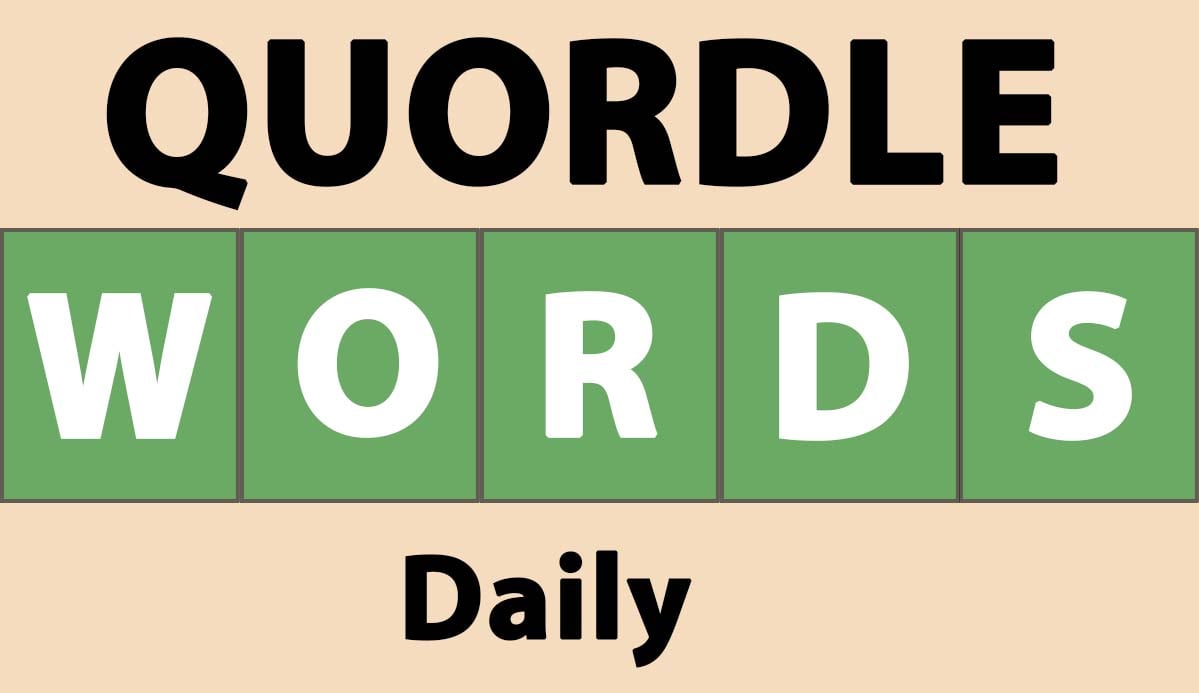
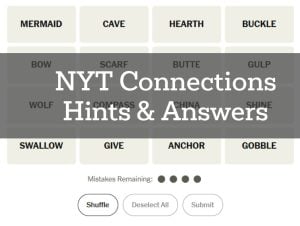
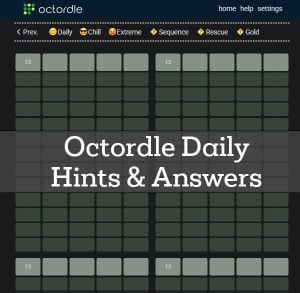
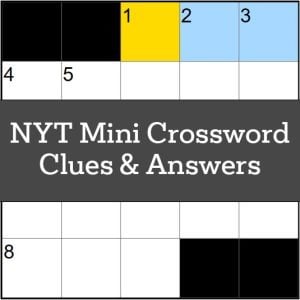
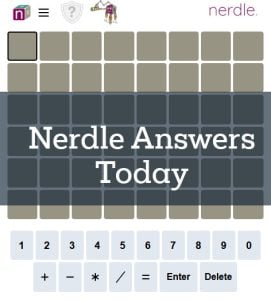
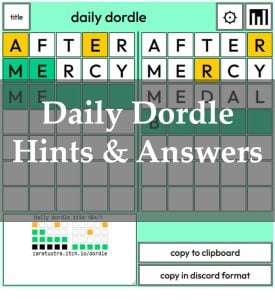
I love these Quordle hints! They make the game so much more fun. Can’t wait to try today’s puzzles!
Thanks for the hints! They really help me get started without giving too much away.
“Chill mode” is perfect for relaxing while still having fun. Thanks for the guidance!
Awesome tips! I’m always looking for ways to improve my game. Thanks for sharing!
Great post! I love how you break down the hints for each mode. Keep it up!
“Quordle” is my new favorite word game, and your hints make it even better. Thank you!
“Spoilers Ahead” is the best warning ever! Thanks for keeping it exciting!
I had so much fun with today’s puzzles! The hints were just what I needed.
“Extreme mode” sounds like a blast! Can’t wait to give it a shot with your hints.
These hints are super helpful! I appreciate the effort you put into making it easier for us!
Wow, this is great! I appreciate the clear warnings about spoilers too. Keep up the good work!
This article is so helpful! I always struggle with Quordle, but these tips make it easier. Thanks for sharing!
I love the hints! They really help me get into the game. Can’t wait to try today’s puzzles!